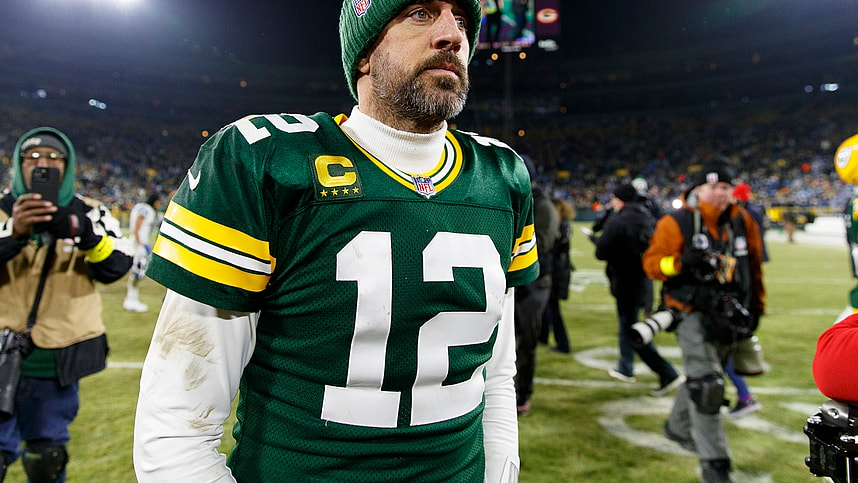
The question most, if not all, New York Jets fans have been asking themselves in the last 24 hours since the offensive coordinator hire of Nathaniel Hackett. What will it cost the Jets to get Aaron Rodgers?
Before diving into specifics on potential trade compensation, the first two things to make sure of are that Rodgers does not retire and, from there, that he wants to be a Jet. Both of which should work out in the Jets’ favor.
A fully-guaranteed amount near $110 million over the next two years ($59.5 million in 2023) makes it hard to believe that Rodgers would hang ’em up. From there, knowing how strongly Rodgers feels about the Jets’ new offensive coordinator, Hackett, certainly gives him the incentive to want a trade facilitated to the Jets.
As long as these two boxes are checked off, the Jets could then iron out the logistics in terms of compensation with the Packers. Let’s take a look at the assets the Jets would probably have to part ways with for the future first-ballot Hall of Famer.
- Jets’ superstar corner praised for elite covderage in Week 1 against DK Metcalf
- Jets’ head coach has high expectations for critical defensive back
- Jets could reunite with free-agent quarterback for depth
What would the New York Jets have to give up for Aaron Rodgers?
The factors with Rodgers to first consider when figuring out trade value starts with his older age. Rodgers is 39 and will turn 40 in December of next season. Retirement is not something he has shied away from, clearly, having now contemplated it for the past three offseasons.
From there, the astronomical price tag he is owed thanks to the huge contract he got last March. As mentioned above, the roughly $60 million that Rodgers is due to get this year does give the Packers some relief should they deal him.
Knowing some of these key variables, that in all likelihood it is a two-year rental for Rodgers, does play to the Jets’ advantage when it comes to the resources they would have to part ways with for what is still a top-10 quarterback.
For starters, it will likely require one first-round pick that the Jets would have to deal in return to the Packers. It seems probable that first-round selection would be this year (the Jets’ 13th overall pick), with maybe a slim chance of it being next year’s first instead. Either way, it looks as if it will only take one first-round pick to get it done as opposed to two ones.
Beyond one first-round draft pick, the Jets will have to probably part with one early mid-round selection. One would have to assume that it would be a second-round pick. That round two selection would likely be either this year or next in 2024. It could all hinge on which year the Jets’ first-round pick goes to the Packers.
Should the Jets have to deal their 13th overall pick in this draft, the second-round pick would make more sense to move in 2024. If the Jets end up parting with their first-rounder in 2024, then they would have to get rid of their round-two pick in the 2023 draft. The Jets’ second-round selection in this year’s draft is 44th overall.
Lastly, perhaps, the Jets could throw in one other asset to ensure that Rodgers is theirs. Maybe, that is another mid-round pick, something along the lines of a fourth-round selection. Or, the Jets could move a player as a final piece to seal the deal. Some have speculated that with the Packers’ previous interest in Corey Davis that the Jets could add him if it helps finalize the deal in what is projected to be a weak free-agent wide receiver market.
So, in the end, it will, of course be expensive and require that the Jets part with likely two premium assets from the next two drafts. But, a move that this Jets team simply needs to make. Expect it to be either a 2023 first (13th overall) and a 2024 second or 2024 first and 2023 second (44th overall). If needed to get it done, possibly something like a fourth in 2023 or 2024, or Davis could be added for the Jets to officially get Rodgers.
More about:New York Jets